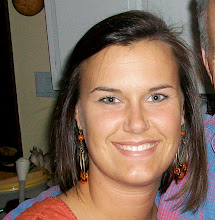
It took me to do some good research to really find out what a PLN is. I actually found the “Networked Student” video when I was researching it before I knew it was an assignment. A big tool that is helping me a bunch with my PLN is Delicious. Anytime that I come across a website that I find useful and helpful to me as a teacher, I have been bookmarking it to my Delicious. I am now finding other people who have saved the same website to their Delicious account and I am researching their websites. I have found some really helpful sites by viewing other people’s bookmarks. I have used Skype to stay connected with my classmates as well. I have been exploring with Twitter, Diigo, and google docs. If I only had all the time in the world I could sit and research a bunch of information. I enjoy doing my blog assignments for this class as well because that also helps me to broaden my PLN. I know the more and more that I explore and comment, I will meet even more people and find even more helpful sites. Creating and expanding my PLN is fun, but like I said, it takes time.







